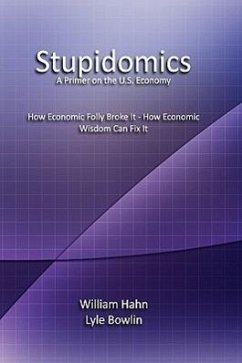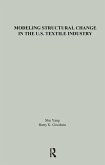At the end of 2008, government leaders and most professional economists were looking at each other and asking, "How did we miss this?" and "Why didn't we see it coming?" Indeed, why didn't they? Our answer to their question is-Stupidomics. Those asking these questions aided and abetted those who drove our economy to the brink of disaster. Words like hubris, myopia, folly, egoism, and pridefulness come to mind when we think about these noble custodians of America's economic wellbeing. While our august leaders were blind to impending economic danger, we saw it coming. To be honest, we weren't sure when the economy would crash, and we didn't know how far it would fall. But, by using the simple circular flow concepts presented in this book, we were confident that a significant adjustment couldn't be avoided. Because of this conviction, in 2007 we made adjustments that protected our financial assets. What we present in this book isn't rocket science. We simply cover basic economic principles in a way that can be understood by non-macroeconomics minded Americans. But our message is important, and the concepts we explore work. Understanding fundamental economic concepts is essential, because economic decisions are imbedded in our jobs, how we spend our money, how our government spends our money, and how international trade impacts our nation. Indeed, economics is a primary decision factor when we vote in local and national elections. No matter how much we try, we can't escape the basic laws of economics-they are a daily fact of life. It is this lack of economic understanding that motivated the title of our book--Stupidomics. The title is not meant to imply that Americans are stupid. Rather, we mean that Americans are not well schooled in the basic tenants of our economic system. As we see things, Stupidomics was a contributing cause of the financial institution crisis of 2008. But the 2008 financial institution crisis is not the first one in U.S. economic history. It is, however, the first one to take place in the 21st Century. In recent times, the U.S. economy experienced a savings and loan crisis in the 1980s which resulted in over 700 failed institutions and cost U.S. taxpayers about $125 billion ($240 billion in current dollars). The repeated trouble within the financial institution industry is a perfect example of what Bok is referring to. The inability to learn from prior mistakes is an aspect of Stupidomics. The unresolved economic sins of the past contributed to the 2008 financial institution crisis and its mind numbing price tag of $700 billion and counting. In this book, we are not seeking to explain all of the theoretical concepts presented in a macroeconomics textbook. Some are too quantitative and others are too arcane to be useful to an understanding of fundamental economic principles. Rather, we seek to present a few basic concepts that will help readers understand how the U.S. economy grows, how sacrifice today can create a more robust economy for our children and grandchildren, and why further tax decreases, while tempting, are unwise. Our book also shows how the U.S. economy got so far out of balance that we are experiencing what most economists are calling the worst financial crisis since the Great Depression.
Hinweis: Dieser Artikel kann nur an eine deutsche Lieferadresse ausgeliefert werden.
Hinweis: Dieser Artikel kann nur an eine deutsche Lieferadresse ausgeliefert werden.








